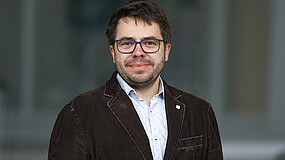A material cycle that is as closed as possible or the sustainable use of valuable or residual materials is a central goal of the scientific work of the LaNDER³ partnership.
In Germany and in Europe, the production of renewable raw materials for energy generation has increased significantly in recent years. However, the material use of renewable raw materials is also becoming increasingly important due to limited resources for petrochemical products. With resource-efficient and sustainable use of biogenic raw materials, there are many useful alternatives for the economy.
Within the scope of the explorative projects for the establishment of innovative material separation processes for aqueous material flows after fermentative fiber digestion, the efficient separation of pollutants as well as a separation of possible inorganic and organic valuable materials will be considered.
Within the scope of the projects, modern as well as classical material separation processes are to be investigated with regard to their fundamental suitability for typical material flows in connection with the production or recycling of natural fiber-reinforced polymer composites (NFRP). The research group will analyze arising separation tasks and reasons why certain separation methods are more suitable than others.
Accordingly, the objectives are:
The targeted research and development for the expansion of the biobased industry ensures value creation in the national and European area and thus real added value for the regional and local use of the raw materials and the use of domestic skilled workers and labor.
